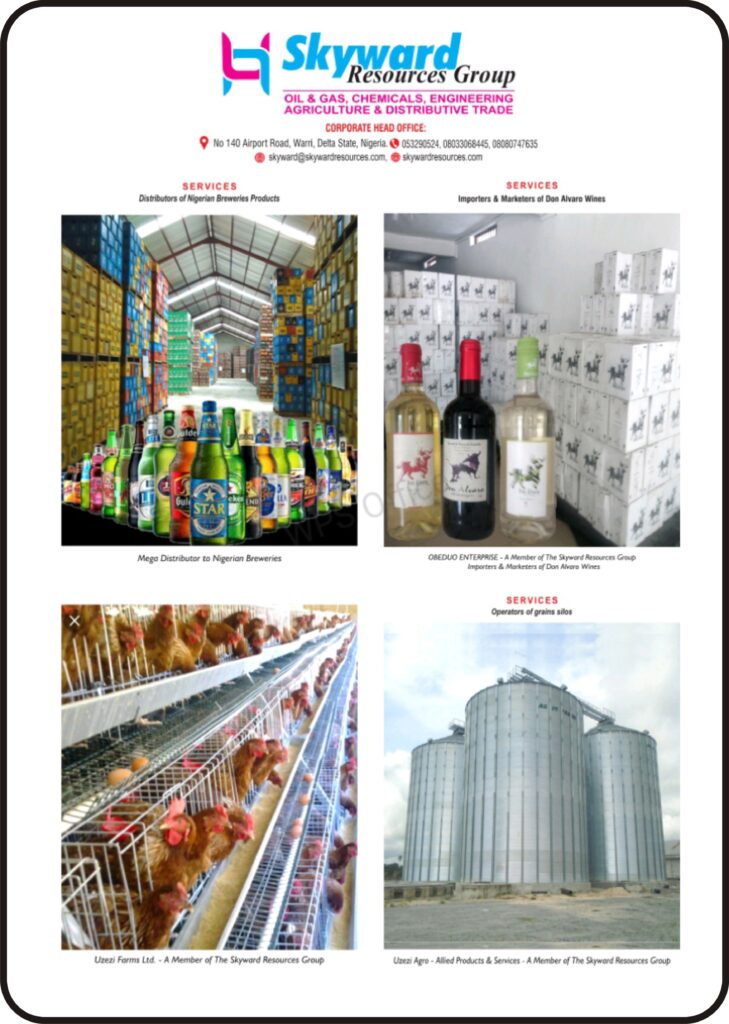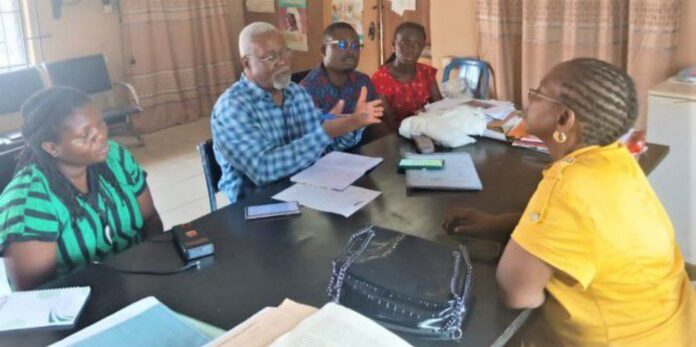By Emeka Nwokocha
ACOMIN, Delta State Advocacy Team, led by Mr. Austin Uwede, on Thursday 27, 2025, paid an advocacy visit to the Executive Secretaries of Warri South and Okpe local government councils as part of the team’s routine monitoring of the Global Fund sponsored free Malaria/Tuberculosis/HIV treatment in selected Primary Health Care (PHC) facilities in Delta State.

Speaking to Dr. M. Sagay, Executive Secretary (ES), Warri South Local Government Health Authority, Mr. Uwede briefed her about the Global Fund sponsored free Malaria/Tuberculosis/HIV treatment and the role ACOMIN plays in the implementation of the health intervention project.
He said, “The Global Fund sponsored Malaria/HIV/Tuberculosis treatment is ongoing in thirteen states of Nigeria, including 10 local government areas of Delta State.
“The implementation of the health intervention project is being facilitated by three nongovernmental organisations which provide different services to ensure the project runs seamlessly and achieves its objective.”

Uwede added, “The non governmental organisations include the Management Science for Health (MSH) which is in charge of commodity supply, the Society for Family Health (SFH) which focuses on demand creation, and ACOMIN whose role is centred on accountability and advocacy.”
He further stated, “In the course of our activities, we routinely visit the selected facilities where the free Malaria/Tuberculosis/HIV treatment is being provided and interact with the staff (medical personnel) to ensure the project runs without any hitches and people are able to access the free health service delivery.”
Uwede added, “We also go to the communities hosting the facilities and enlighten them about the ongoing project so they would access the free health service. We also urge them to take ownership of the facilities and support the ongoing health intervention project to ensure quality health service delivery.”
Uwede said that the ACOMIN team uses different methods, including Focus Group Discussion (FGD) to appraise the success of the project in various facilities, saying, “When we go to a community for the first time, we go to the facility, we rely on selective audience to get a feedback on the health services being provided to patients.
Our target audience is pregnant women, parents of under-five years children, and community leaders. We let them know what our roles are and also seek their cooperation.
We also sensitize the communities that the facility is not just a government property, that their support to the facilities would ensure quality health service delivery.”
He further stated, “When we go to the facilities and observe some gaps, we seek support from the communities and the government to address them.
He said, “In the course of our supervisory role and ensuring accountability in the delivery of health service to patients, we have completed our activities at Eboh and Igbudu PHCs and currently working at Ugbuwangue and Ifie PHCs.”
Continuing, Uwede noted some challenges in the healthcare facilities, saying, “The Ugbuwangue facility’s roof is leaking, there is no labour room, and there is a need for an oxygen tank.”
Uwede stated that his team had sought the assistance of the leaders of Ugbuwangue community to fix the leaking roof in the hope of a positive response.
He also stated that the septic tank in Ifie facility had collapsed, adding that the attention of the community had been drawn to the collapsed septic tank hoping that it would be fixed in no distant time.
Continuing, he noted that the medical personnel working in the facilities are grossly inadequate, adding that most of them are ad hoc staff.
He expressed the urgent need for the government to recruit more health personnel to address the drastic shortage of staff at the PHCs.
He commended the people of Ifie community for providing little support to the facility, such as provision of consumables including plasters, cotton wools, syringes.
He said, “While we are waiting for positive response from the communities, we are calling on the local government council, owner and manager of the facilities to address the challenges to ensure a conducive environment for the provision of quality health service delivery to the people.”
Responding, Dr. Sagay thanked the ACOMIN team for their observation and contribution to quality health service delivery at the PHCs.
She stated that the current chairman of Warri South local government council, Hon. Weyimi Agbateyiniro, upon resumption of office, asked her and the supervisor for health to do a tour of the healthcare facilities in Warri South LGA, note their challenges and present them to him.
She stated, “We had gone round and submitted our observation to the Chairman for action. I am sure in no distant time the challenges you have noted will be addressed.”
She added, “Meanwhile, I will deploy one staff to Ifie facility to make health service delivery less cumbersome.”
She further stated, “On the issue of shortage of manpower and use of ad hoc staff at the PHCs, it is the responsibility of the Delta State government to address the challenge.
In a similar vein, Mr. Austin Uwede and his team visited Orerokpe PHC and met with the RBM, Mrs. Victoria Aragbata and briefed her about the ongoing Global Fund sponsored free Malaria/HIV/ Tuberculosis in selected PHCs in Okpe local government area and the role of ACOMIN in ensuring the health intervention project runs successfully.
Uwede told her that ACOMIN Team had exited Osubi and Okuokoko PHCs, and currently working at Ughoton and Jeddo PHCs.
Uwede noted the challenges in the facilities to include flooding at Osubi PHC during rainy season, and the facility has no security man and gardener. He also noted that Okuokoko PHC is flooded during rainy season. He further noted that Ughoton facility is not fenced, no adequate chairs, no security man, and no gardener.
He added that Jeddo facility does not have electricity and adequate chairs, saying, “We had met with the community chairman to seek assistance, he promised that temporarily, he will provide chairs to the facility during antenatal and routine immunization days.”
“We are making further effort to ensure the facility has adequate chairs,” he stated.
Uwede expressed concern over the shortage of staff in all the facilities, noting that the development inhibits effective health service delivery to patients.
Responding, Mrs. Aragbata thanked ACOMIN team for their complementary role in ensuring quality health service delivery in the PHCs, stating that despite the inherent challenges, the staff of Orerokpe PHC are doing their best to deliver quality health service to patients.
She said that the challenges observed at the facilities would be noted and communicated to the relevant authorities for action.












